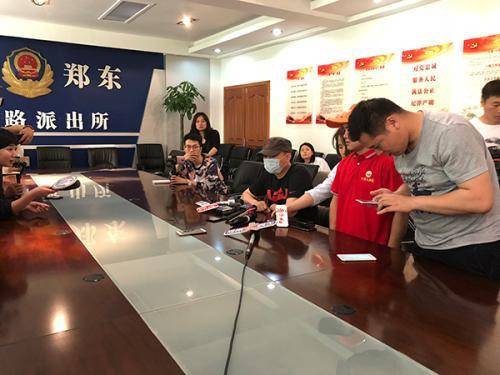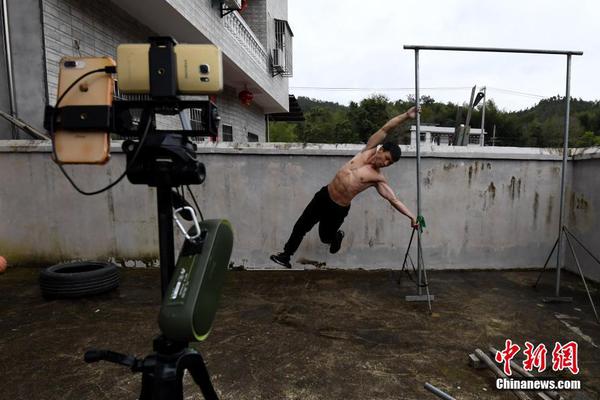【】
Before Iman Le Caire leaves her house in the morning, she burns sage and prays. Her prayer is always the same: "Please God, don’t let anyone give me The Look."
She's referring to the constant stare from strangers on the street, eyes that follow her with judgment and hatred. It's a look Le Caire faces often as a self-identified transsexual woman -- one that keeps her from riding subways at night or straying from places she knows well.
"You can see the anger in their eyes -- and you know they really want to kill you," she says.
Le Caire has learned to stay silent, and knows better than to glance back. She just keeps walking, trying to find a safer space in a world that isn’t welcoming to women like her.
"You can see the anger in their eyes -- and you know they really want to kill you."
The National Coalition of Anti-Violence Programs (NCAVP), a nonprofit focusing on addressing and ending hate-violence, released a report Monday titled "Lesbian, Gay, Bisexual, Transgender, Queer and HIV-Affected Hate Violence in 2015." It analyzes instances of hate violence in the LGBTQ community, detailing the constant threat -- and realization -- of violence that keeps LGBTQ people like Le Caire from living freely and fully.
The report, which looks at 1,253 incidents against LGBTQ and HIV-affected people in 11 states, comes only one day after the deadliest mass shooting in modern U.S. history, an attack that left 49 dead (in addition to the shooter) and another 53 injured -- all of whom were attending a Latin night at an LGBTQ nightclub in Orlando, Florida.
But violence inflicted upon the LGBTQ community isn't new. Harm and harassment -- or fear of it -- are constants for LGBTQ people around the world.
The many forms of hate violence
Hate violence takes many alarming forms -- street harassment based on queer identity, employment and housing discrimination, shootings at a nightclub -- that target an already vulnerable community.
And discrimination is also being written into laws. Anti-LGBTQ legislation, like "bathroom bills" and laws providing the right to refuse service to LGBTQ individuals, have advanced in states like North Carolina, Mississippi and Oklahoma over the past year.
In 2015, the most common types of hate violence reported to NCAVP were verbal harassment, discrimination, physical violence, and threats or intimidation -- a wide range of harm that represents a wide range of experiences within the community.
"There is no single narrative of an LGBTQ hate violence survivor."
"There is no single narrative of an LGBTQ hate violence survivor," Essex Lordes, a member of Communities United Against Violence in San Francisco, said in an NCAVP release. "We need a full picture of what hate violence looks like for our communities if we are going to effectively address it."
Le Caire has experienced hate violence in her life for years, first as a gay man in her home country of Egypt, and now as a transsexual woman in New York City.
In Egypt, threats from her family kept her from coming out as trans -- but she still felt the threat of hate violence looming.
"You hear from them that they are going to bury you underground, because we have honor killing,” she says, speaking of familial murder believed to preserve family respect. "You feel like you're going to get killed."
And her fears weren’t unrealistic. Le Caire's brother stabbed her, simply for being gay. After that trauma, she was imprisoned in Egypt for being at an underground gay club. At the time, many LGBTQ people were being imprisoned and tortured by authorities in cases condemned by international human rights activists. Le Caire's friends were among them.
"I felt like it was my turn," she says.
 "You can see the anger in their eyes -- and you know they really want to kill you," Le Caire tells Mashable.Credit: Johnny Simon/Mashable
"You can see the anger in their eyes -- and you know they really want to kill you," Le Caire tells Mashable.Credit: Johnny Simon/MashableLe Caire left Egypt in 2008 after obtaining a tourist visa for the U.S. The paperwork came just in time -- she learned the police were looking for her the day she left.
Eventually, the U.S. granted her political asylum, and she was finally was able to transition with the support of her now-husband. But living as a trans woman in the U.S. wasn’t as freeing as she expected.
"I didn’t know that I was going to have this type of violence here," she says. "You come here [thinking there is] freedom to be who you are."
That freedom isn't exactly realistic for trans women -- especially trans women of color like Le Caire. In 2015, there were 24 reported hate violence homicides against LGBTQ individuals, a 20% increase from 2014. Transgender and gender-nonconforming people of color made up the majority -- more than half -- of homicides.
Some of Le Caire's experiences with hate have come from within the queer community itself. Once she disclosed her plans to transition, she lost many gay friends. It's a breed of hate she especially can’t understand.
"I didn’t know that I was going to have this type of violence here."
"How are you transphobic? You're gay,” she says. "Do you understand where you come from? It's happened to you before."
But hate from those you know, even those in the community, isn't rare. In 2015, 62% of hate violence survivors knew the person who harmed them, as was the case for Le Caire. She even lost her job due to hate violence, getting fired from a Long Island gay-friendly club she was working at when she started to transition.
The NCAVP report finds that workplace discrimination and harassment is not a rarity for members of the community. About 27% of LGB people have experienced workplace harassment, with 7% losing a job as a result of discrimination.
But for trans people of color like Le Caire, the statistics are even more devastating. A reported 32% of black trans folks say they've lost a job due to bias, with nearly half saying they were harassed in the workplace. Of those individuals, 15% report being physically assaulted, while 13% report sexual assault.
Le Caire's manager didn’t even need to hide his discrimination; New York is one of 31 states where a person can be legally fired for their gender identity.
"He just said one time ... 'I don’t want to see those kind of people here. It's a gay place,'" she says.
The cultural clash of hate crimes
Mohamed Q. Amin was at a duck curry competition, a popular event in Caribbean communities, in Queens when he heard the percussion players taunting him. His partner, a talented chef, entered the contest with his signature dish, and he was determined to win. But right before the judging began, Amin heard the emcee shout over the microphone, “The gays are in the building. The gays are in the building.”
Amin knew he was referring to him -- and his partner, gay brother, bisexual sister and queer friends. The percussion players quickly took note. They called him hateful words such as "batty man" and "chi chi bwoy," thick with the venom of history and cultural weight, and Amin knew he had to speak up.
"You guys are being really disrespectful right now," he said, confronting the men. "We are about to judge a competition; let's judge a competition."
 "Something inside me said, ‘Mohamed, someone has to do something. And maybe that someone is you,'" Mohamed Q. Amin tells Mashable.Credit: Johnny Simon/Mashable
"Something inside me said, ‘Mohamed, someone has to do something. And maybe that someone is you,'" Mohamed Q. Amin tells Mashable.Credit: Johnny Simon/MashableHis words prompted one player to push him out of the venue. A crowd of others, including Amin's loved ones, followed. As his brother tried to diffuse the situation, a percussionist hit him in the head with a trophy while shouting more anti-gay slurs.
According to NCAVP, about 23% of survivors in 2015 reported needing medical attention as a result of the hate violence they experienced -- a statistic Amin and his family fit. He and his brother were left severely injured, both forced to stay out of work for a month.
"It became this moment that I realized, wow ... you experience violence not for anything else but because you are gay."
"It became this moment that I realized, wow, in our own community at a cooking competition where you are supposed to be safe while representing your culture, you experience violence not for anything else but because you are gay,” he says.
Though Amin, who is the executive director of the Caribbean Equality Project, reported the violence to police, he says that much of the hate violence in immigrant and Caribbean communities goes unreported due to cultural disconnect. Reports like the ones released by NCAVP, then, only show a portion of the story.
"Most of the time, it's not reported because someone doesn’t want to out themselves," he says. "It means they have to deal with this violence internally, because if they expose it, then they have to come out."
And reporting to law enforcement isn't entirely safe, even without cultural barriers to navigate. Only 41% of those who experienced hate violence in 2015 reported going to the police. Of those who did report it, 80% of survivors said that the police were indifferent or hostile. Some even reported verbal, physical or sexual violence from law enforcement.
Outing and fear of harm aren’t the only barriers. Even when reporting a hate crime that hinges on cultural identity, police departments are often ill-equipped to handle the situation.
"The Caribbean community has its own hate slurs that the police department doesn't recognize," Amin says. "So when violence happens to us, there is also this culture that is part of the violence that is not documented."
“Sometimes advocates aren’t born, they’re made."
But violence in the LGBTQ community especially impacts people of color who often experience this cultural clash, a fact echoed by the devastating mass shooting at Pulse nightclub this past Sunday. About 60% of individuals reporting an experience with hate violence were people of color -- Latinx people of color made up 29% of that group, with black queer individuals making up 21%.
His experience with hate violence, Amin says, ignited the need in him to be an advocate for those populations, putting his attention and action on those most at risk, yet most commonly ignored.
"Sometimes advocates aren't born, they're made," he says. "And I think this was my moment that my advocacy really stepped in. Something inside me said, 'Mohamed, someone has to do something. And maybe that someone is you.'"
 "It became this moment that I realized, wow ... you experience violence not for anything else but because you are gay," Amin says.Credit: Johnny Simon/Mashable
"It became this moment that I realized, wow ... you experience violence not for anything else but because you are gay," Amin says.Credit: Johnny Simon/MashableLiving with "The Look"
The fear of violence from strangers is the reason Le Caire burns sage and prays in the mornings. She never knows what to expect from her daily encounters, and she's careful for a reason.
There was a time, for instance, that she and a friend were sexually harassed on the street. When the pair physically fought back to protect themselves, the man assaulting them eventually fled -- but not before saying, "I'm going to get my gun and I am going to shoot both of you."
Then there are the times men will assume Le Caire is a sex worker, asking, "How much?" while she is simply going about her daily errands. She’s learned to ignore them, but then they call after her: "You're a man. You're not a woman. You're embarrassing yourself. You are fooling yourself."
"They look at you like you don’t exist," she says. "It’s The Look. I escaped my country to come here and not have to live with that look."
"I just hope nobody comes and tries to take my life away from me."
Le Caire says hearing about the violence inflicted on the LGBTQ community -- especially trans women because of their heightened risk of murder and sexual assault -- frightens her so much that she can’t help but restrict her own behavior. She'll do anything to avoid the statistic.
"I just worry about my life," she says. "I went through a journey and I saved my life until now. I'm not willing to let somebody take my life just because he’s upset or angry."
She's silent for a few seconds, and looks away before adding: "I just hope nobody comes and tries to take my life away from me. That is my biggest concern."
If you want to talk to someone about how hate violence has impacted you, there are several resources available. The Anti-Violence Project offers a 24-hour bilingual crisis hotline at 212-714-1141. Other LGBTQ-specific hotlines around the U.S. are available here. If you're looking for international resources, this is a good place to start.
Editor's note: The death toll has been updated to 49, to exclude the shooter, per the FBI on Monday. Iman Le Caire's last name has been updated from "Le Caive" in the original publishing to the correct spelling of "Le Caire."
Have something to add to this story? Share it in the comments.
TopicsLGBTQSocial Good
相关文章

Hiddleswift finally followed each other on Instagram after 3 excruciating days
On Aug. 13, 1961, Germany began construction of the Berlin Wall, perhaps the greatest symbol of the2025-04-03
We regret to inform you that this brand tweet about St. Louis food is funny
When brands participate in memes, it is generally -- and I can't stress this enough -- the worst thi2025-04-03
The Emoji Challenge has inspired a fierce group chat competition
Rev up those notifications, it's time for another internet challenge.To get in on this latest trend,2025-04-03
Dan Levy announces 'Schitt's Creek' to end with sixth and final season
It's the end of an era, fellow fans of Schitt's Creek. Co-creators Daniel and Eugene Levy announced2025-04-03
You will love/hate Cards Against Humanity's new fortune cookies
If you've ever ordered Cards Against Humanity from the delightfully corrupt board game's website, yo2025-04-03
We regret to inform you that this brand tweet about St. Louis food is funny
When brands participate in memes, it is generally -- and I can't stress this enough -- the worst thi2025-04-03

最新评论